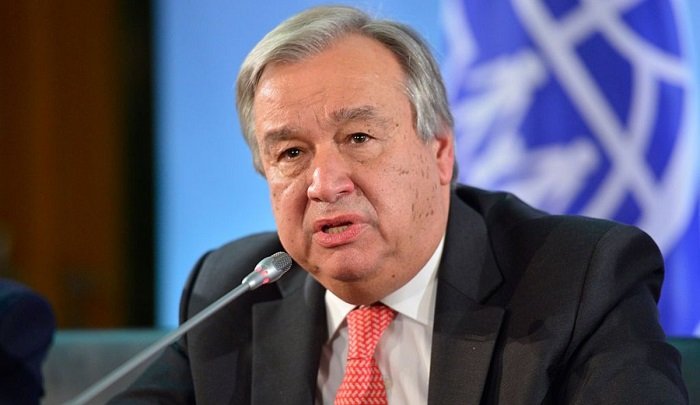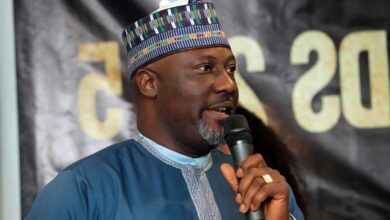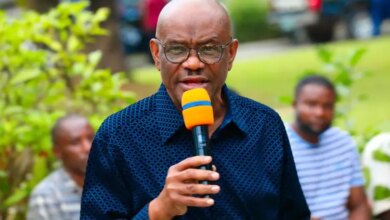The United Nations in Ghana: Advancing peace, dignity, and sustainable development for all

Since opening its first office in Ghana in the late 1950s, the United Nations, guided by its founding principles of peace, human rights, and development, has stood as a steadfast partner in the country’s development journey. From the earliest days of independence to today’s complex global challenges, the UN has worked, and continues to work, together with Ghana to build institutions and empower communities.
A Legacy of Partnership and Institution-Building
The UN’s engagement began with the Office of the Resident Representative of the United Nations Technical Assistance Board and deepened through a 1959 agreement with the Government of Ghana and the UN Special Fund. This collaboration led to the creation of the Ghana Institute of Management and Public Administration (GIMPA), a transformative response to the urgent need for a professionalised civil service.
By 1961, GIMPA was operational, supported by UN guidance and Commonwealth partners. It became a cornerstone of public sector capacity-building, reflecting the UN’s commitment to strengthening governance and national institutions.
In 1966, the merger of the UN Special Fund and the Expanded Programme of Technical Assistance formed the United Nations Development Programme (UNDP), ushering in a new era of coordinated, people-centered development support.
A System-wide Presence for People and Planet
Today, the UN system in Ghana includes over 40 entities—some with offices in-country, others engaging through key partners. Together, they promote peace, protect human rights, and foster sustainable development across sectors such as:
Health & Education (WHO, UNICEF, and UNESCO);
Gender & Youth (UNFPA and UN Women);
Governance & Peacebuilding (UNDP and UNODC);
Climate & Food Security (UNEP, WFP, and FAO);
Public Engagement (UNIC Accra);
Trade & Innovation (UNCTAD and ITC);
Rural Development (IFAD);
Local Economies (UNCDF);
HIV/AIDS Response (UNAIDS);
Migration Governance (IOM);
Refugee Protection (UNHCR);
Maritime Safety (IMO);
Urban Development (UN-Habitat);
and Nuclear Technology (IAEA).
A Unified Framework for Impact
While each UN entity has its own strategy, the United Nations Sustainable Development Cooperation Framework (UNSDCF) serves as the overarching blueprint for coordinated support. Co-developed with the Government of Ghana, it aligns with national priorities and the global 2030 Agenda, focusing on equity, sustainability, and resilience.
The UNSDCF also promotes inclusive partnerships, engaging civil society, academia, the private sector, and media to deliver measurable results and transformative change.
Leadership for Cohesion and Results
The UN Resident Coordinator (RC), the Secretary-General’s representative in-country, leads the UN Country Team and ensures a unified, strategic response to Ghana’s development priorities. The Resident Coordinator’s Office (RCO) facilitates coordination, enabling the UN system to deliver as one—coherent, impactful, and aligned with Ghana’s aspirations.
Delivers Results Amid Global Challenges
Despite global uncertainty and regional climate shocks, the UN-Ghana partnership continues to deliver tangible results. Between 2023 and 2024:
• Over 7.6 million children were immunised against polio, measles, and rubella.
• 4.6 million children received Vitamin A supplements, and thousands of adolescent girls were reached with iron-folate tablets to combat anemia.
• The UN supported Ghana’s peaceful 2024 elections, mobilising over 100,000 citizens through the “I Pledged for Peace” campaign.
• 212,000 vulnerable households received emergency cash transfers during climate shocks, and 54,000 flood victims accessed free healthcare.
• Nearly 1,000 MSMEs—68 per cent female-owned—received tailored support, while over 1,100 jobs were created through digital transformation, climate-smart agriculture, and green business initiatives.
These gains stem from the UN’s integrated approach—blending policy engagement, technical guidance, national planning, capacity building, and catalytic funding.
In agriculture, the UN introduced solar-powered irrigation systems and improved post-harvest management. In education, support for policy reform and teacher training has fostered inclusive learning environments.
The Institute for Educational Planning and Administration at the University of Cape Coast, established with UNESCO and UNDP, continues to inform national policy, while the National Teacher Policy has elevated professionalism in classrooms.
Despite the recent suspension of US$18.95 million in U.S. government funding impacting 11 UN agencies, the Government of Ghana and the United Nations have worked closely to reconfigure programmes and mobilise alternative local resources to sustain essential services. This demonstrates both the resilience of UN partnerships and the Government’s decisive leadership in bridging critical funding gaps.
Looking Ahead
The UN is preparing a new UNSDCF aligned with Ghana’s Medium-Term National Development Policy Framework and Africa’s Agenda 2063. This next phase will focus on areas including, but not limited to, accelerating economic transformation, expanding access to essential services, strengthening emergency preparedness and deepening inclusion and human rights.
This renewed partnership promises to enhance the UN’s impact, ensuring Ghana’s development remains inclusive, sustainable, and resilient.
By: United Nations Resident Coordinator for Ghana
BY H.E. ZIA CHOUDHURY
🔗 Follow Ghanaian Times WhatsApp Channel today. https://whatsapp.com/channel/0029VbAjG7g3gvWajUAEX12Q
🌍 Trusted News. Real Stories. Anytime, Anywhere.
✅ Join our WhatsApp Channel now! https://whatsapp.com/channel/0029VbAjG7g3gvWajUAEX12Q





